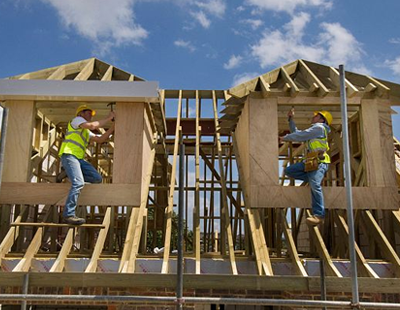There’s gathering momentum to do ‘something’ about the unfairness of council tax and stamp duty.
This isn’t new in principle. Agents have for years been advocating the end of stamp duty with solid arguments suggesting its positive impact on the economy (but as someone once exclaimed, they would say that wouldn’t they?).
Meanwhile a council tax based on 1991 house prices has been widely regarded as unfair, with successive governments shying away from revaluation for fear of upsetting…well, literally millions of taxpayers.
Now there seems to be momentum gathering for an alternative - a reform of council tax and stamp duty together, by levying a tax on a proportional basis linked to house values.
Interestingly, the running is being made by Conservatives and cross-party groups rather than opposition politicians, with charities now coming alongside. One can imagine there’s still only an outside chance that this will be adopted by Chancellor Rishi Sunak, but support is growing - agents might want to consider what it would mean for future sales.
The Social Market Foundation, the free-market supporting Centre for Policy Studies, the ‘Tory lite’ Bright Blue Group and others support the proportional property tax idea, with the main charity backing it being the Fairer Share Campaign.
This is how they say a Proportional Property Tax would work.
PPT would be based on the current value of a home and levy an annual property tax at 0.48 per cent: the rather clunky 0.48 figure is proposed because it would, across the nation, raise much the same as the current council tax.
As the PPT revenue would be collected by national government, the theory is that it would then be dispersed to local councils to use as now - so councils would not lose out.
On the plus side for politicians, many advocates of PPT claim this would mean bills lower than the current council tax for as many as three quarters of households - and immediately raising the downside, of course, than a quarter would pay more than today.
This would also mean that holiday home owners would probably pay more tax than now and if - as some suggest - PPT was applied to land, it would probably incentivise developers not to sit on plots after planning consent had been given, and instead build quickly.
The plus sides of having PPT instead of stamp duty are obvious - first time buyers would have a slightly lower hurdle to surmount when purchasing, and the disincentives for downsizes and reluctant movers would be reduced too.
So what are the downsides? Put bluntly, most are political rather than financial or ethical.
Earlier this year the Daily Mail, citing unnamed government sources, said a version of the PPT was under consideration by the Treasury but then abandoned when it was discovered that the quarter of households paying higher bills were predominantly in Tory heartlands in the south of England.
This is despite the fact that in parts of northern England now represented by the ‘Blue Wall’ of Tory MPs replacing ‘Red Wall’ Labour, many households would be on average £660 a year better off with a PPT.
There’s one final element to note about PPT - its popularity amongst Conservative MPs remains tiny, but it is growing.
Kevin Hollinrake, the founder of Hunters and now Tory MP for Thirsk and Malton and chair of the Property Research Group, says: “The time is right to put fairness back at the heart of how we tax property. Replacing stamp duty and council tax with a proportional property tax would ensure homes are taxed at their current value. It would also boost transactions throughout the market, creating huge economic output at a time when we most need it.’
It isn’t going to happen soon, but momentum is building slowly. Watch this space…
*Editor of Estate Agent Today, Letting Agent Today and Landlord Today, Graham can be found tweeting about all things property at @PropertyJourn






/Parliament-Night-400x310.jpg)

/RishiSunak-400x310.jpg)





.png)


.png)



Join the conversation
Jump to latest comment and add your reply
economics 101 - usage taxes are more effective than transaction taxes - they improve utilisation and increase flow and lead to the better functioning of marketplaces. So PPT and no stamp will be great for the economy, will increase sales and incentivise the better use of space and existing housing stock, whilst all those wonderful homes that we always get promised will hopefully, eventually be built
I not saying this is a bad idea, although it surely requires a nationwide revaluation (however it’s done) to include the value of land, which has previously been the fundamental blockage to making the 1991 valuation fairer. And how often is a revaluation deemed necessary thereafter?
Please login to comment